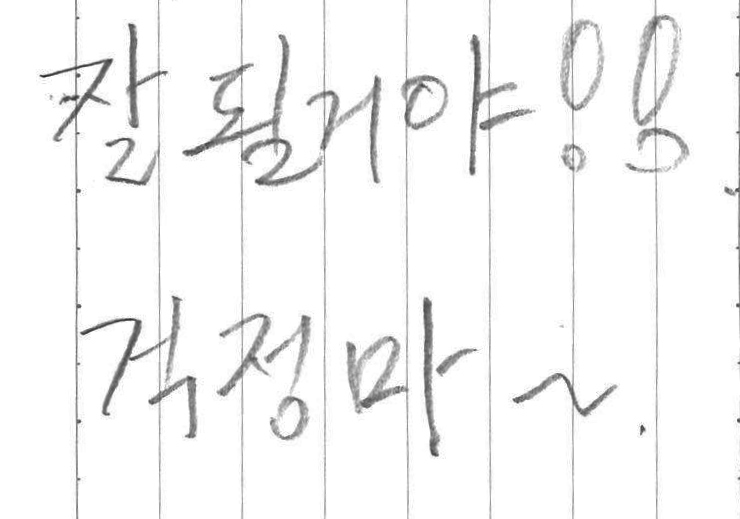Curt and I were discussing my situation and imminent departure, and all the accompanying uncertainties.
He used the phrase, 잘될거야! 걱정마~ which he helpfully wrote down for me because he knows I learn best visually.

I more or less understood it but had never tried to parse it grammatically.
잘될거야! 걱정마
jal.doel.geo.ya geok.jeong.ma
well-become-FUT-BE-FAM(?)! worry-DON’T
It’ll turn out alright. Don’t worry.
The “-야” verbal ending (not to be confused with vocative -야, which attaches to nouns) is one that I see and hear all the time, but I’ve never seen it explained in any of my grammar books. I’ve labeled it “BE-FAM” above, for “BE, familiar” – meaning it seems to be a kind of slangy version of the copula that does’t get explained in grammar books. Or maybe I’m wrong and it’s something else, but anyway, I get the meaning of it.
Later I accused him of “irrational optimism,” which he took badly, but in fact I see that as a positive trait: irrational optimism is stronger than rational optimism, because the latter is subject to sudden dissolution in the face of facts.
[daily log: walking, 7.5km; carrying heavy box to post office, 0.5km]

I think you have the meaning perfectly right.
To the extent this form does not appear in a grammar books it seems a sign of the book’s writers questionably-useful practice of avoiding low-(but-living-)speech to make absolutely sure students don’t insult their audience unintentionally by using the ‘wrong’ register. Something like how many books even teach formal 입니다 before 예요 and don’t even approach Banmal until Level 2 at the earliest, even Level 3, and seldom ever encourage it Banmal at any level. (This is my experience.)
될거야 to me indicates the future tense specifically, which distinguishes it from the 야 that attaches to nouns (which is 이다 in banmal, of course).
I think the “거” there in 될거야 is just good old “것,” which rarely survives in full form when actual people actually speak; 것 leans toward being a textbook word, I have noticed. Now that I think of it, maybe Korean partially lacks a full future tense, by which I mean they are using this “것” (“thing”) as a crutch to guide meaning; future is indicated in theory by the “ㄹ” ending but it never exists without the “것” crutch. So there is no “잘 될어”, which i guess would be a pure grammatical future form, but it is always “잘 될 거예요” [or 야](“[this is a] thing [that] will turn out well”).
잘 되다 [base form]
[past tense]
잘 됬어 “It turned out well”
잘 됬습니다 “It went well”
[present tense]
잘 된다 “It goes well” or “It’s going well”
잘 되고 있어 “It’s going well” (forcing an unambiguous continuous tense)
[future]
잘 될겁니다 “It will turn out well”
잘 될 거예요 “It will turn out well”
잘 될 거야” “It’ll turn out well” (this being 반말 or 혼잣말).